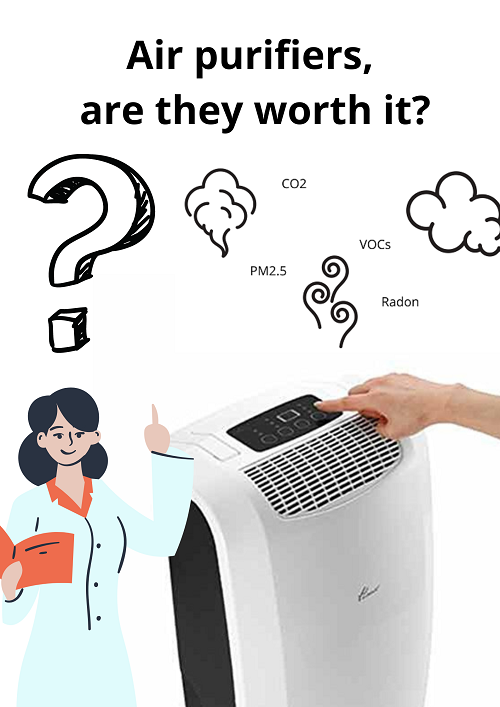Air purifiers can be of great benefit to our health. They clean the air of particles, which can reduce allergies and odors.
If you have allergies, asthma, or respiratory issues, an air purifier is surely worth it. However, even if you do not seem to have any air quality issues, the healthiness of your air can easily be less than optimal.
Keep in mind that air pollution is invisible. Although heavy pollution such as smoke is visible, even very diluted, and therefore invisible, smoke is still harmful.
According to the US environmental protection agency, indoor air is between 2 and 5 times more polluted than outdoor air.
Reasons why an air purifier is worth purchasing:
- filters the air of dust
- reduces airborne allergens
- removes airborne mold spores
- can reduce odors
- removes viruses
- filters out pollen
In what circumstances is an air purifier recommended?
If you have any of the following, an air purifier is likely to improve your air and therefore your well-being and health.
You live in a high-traffic area
Cars produce a lot of harmful airborne particles by burning fuel. This pollutes the air and will eventually find its way into your house.
You live in an area that has regular wildfires
Wildfires can produce a lot of smoke and therefore small harmful airborne particles. If they occur often, you will want an air purifier to make sure your indoor air remains clean.
You often do odd jobs indoors
When you often do tasks that generate some dust or smell, you will benefit from an air purifier cleaning your air.
You have a pet
Pets create air pollutants by losing hair, creating pet dander, or bringing dirt into the house. This all contributes to an increase in airborne particles that you will want to avoid inhaling. Therefore, an air purifier is a great solution.
When people are smoking indoors or close to your door or balcony
Smoking creates a lot of harmful airborne particles that can harm anyone that is exposed to them. Therefore, even if you do not smoke yourself, you will benefit from cleaning the air with an air purifier.
If you are unsure and want to find out if you have polluted air, I recommend reading my article: How to tell if your air is polluted: 16 indicators.
Additionally, I recommend reading my article on what causes air pollution for more information. This article also includes common household products and activities that can lead to poor air quality.
What are the effects of poor air quality?
There are several health effects that can be indicators of poor air quality. The most common health effects are:
- irritation of
- eyes,
- nose, or
- throat
- headaches,
- dizziness,
- fatigue
If you are experiencing one or more of the above symptoms, they might be caused by poor air, and you will benefit from using an air purifier. However, some symptoms related to poor air quality can be very similar to those from viral diseases or the common cold. Therefore, it is not always the case that air quality is the cause.
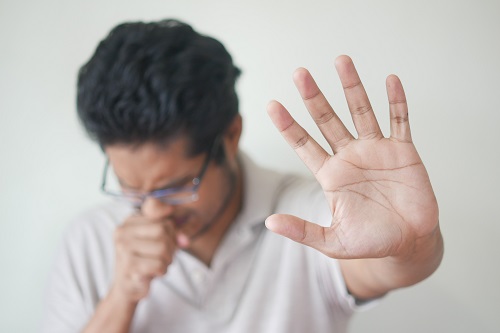
Poor air quality can also lead to some long-term health effects. These include:
- respiratory disease
- heart disease
- cancer
For more detailed information on air pollutants and their effects, I recommend reading my article: What levels of air quality are dangerous?
It can be difficult to know if you have poor indoor air quality. You will need to measure the presence of several compounds before knowing for certain. There are devices called air quality monitors that can measure many different compounds in the air. However, they do not help clean the air. I have several articles on air quality monitors on this website, you can find them here.
Good air quality is especially important for kids
Children are extra sensitive to indoor air pollutants. They have relatively large lungs for to their size in comparison to adults. Therefore, they breathe in more air and more pollutants compared to adults.
Children’s airways are also narrower than those of adults. Therefore, swelling and irritation can result in relatively greater blockage of their airways. Because of this, children are more at risk than adults.

When do you not need an air purifier?
You don’t always need an air purifier. They are the most useful when you have limited options to clean the air through ventilation. For example, when you have few windows and other options to allow outdoor air to freshen your indoor air.
The best way to maintain healthy indoor air is to regularly air out the house with healthy outdoor air and make sure to constantly ventilate.
Other than that, you will not need an air purifier if you have a modern HVAC system with special filters to remove harmful airborne particles and gases. Ask your landlord or look for information about your HVAC system to know whether you have such filters.
To know for certain whether your air is poor, you will need to measure your air quality over a period of time. This will give great insight into if you need to improve your air quality and what compounds you need to address.
If you want to know more about air quality monitors, I recommend reading my article: are air quality monitors worth it?
Can you clean the air without an air purifier?
Yes, there are several things you can do to start cleaning the air without the use of an air purifier. Also, eliminating the causes of air pollutants improves your air quality.
There are several things you can do or avoid doing to improve your air without the use of an air purifier. These are:
- ventilate more often and air out the house regularly (this won’t work when your outdoor air is heavily polluted)
- only use natural healthy cleaning products and don’t mix them
- clean your carpet more often
- avoid using candles and incense
For more in-depth information about what you can do to improve your air quality without the use of an air purifier, I recommend my article: This is what causes your poor indoor air quality.
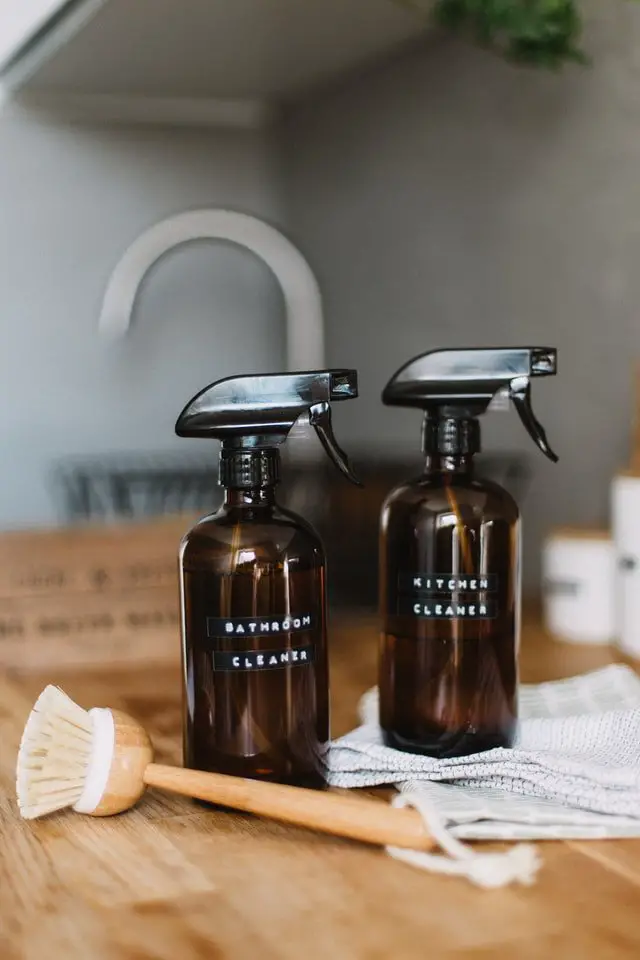
What about air-cleaning plants?
There are many positive effects of bringing flowers and plants into your living room. However, cleaning the air is not one of them. The internet loves making people believe all they need to do is buy some plants and their polluted air will become crisp and healthful. This is heavily exaggerated.
You can read all about houseplants and their effects on indoor air quality in my article: Do houseplants improve indoor air quality?
Additionally, I wrote a review of ‘natural’ ways of cleaning the air. They mostly don’t work, and you should take up good habits instead. You can find the article here: How to naturally purify the air in your house (a critical review + what actually works).
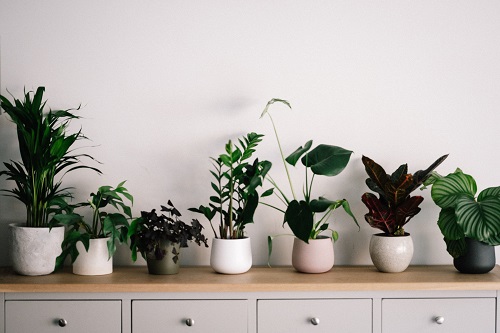
What are the disadvantages of air purifiers?
There are a few disadvantages to using an air purifier. These include:
- they require closed windows and minimal ventilation to work optimally
- they require regular maintenance, cleaning, and filter replacement
- they make noise
For a complete article about all the potential disadvantages of running an air purifier, I recommend reading my article: What are the disadvantages of an air purifier?
An air purifier does not always remove gases
Most air purifiers do not remove gases. They are normally designed to remove airborne particles and not gases. The currently best and most popular air filters, HEPA filters, are very good at removing particles, but cannot trap gases.
Gas molecules are much smaller than other airborne particles, and cannot be caught in even the best particle filter. Therefore, harmful and smelly gases can still remain an air quality issue even with an air purifier.
However, many odors are coming from particles (e.g. pet dander). Therefore, cleaning the air of particles with an air purifier will likely reduce bad smells.
However, harmful gases such as volatile organic compounds (VOCs) still worsen your air even while using an air purifier. These gases come from, among others, drying paint, cleaning products, and deodorizer
Luckily, air purifiers can be equipped with special gas filters. Examples of such filters are activated carbon and zeolite. You can read all about the removal of gases with an air purifier in my article: Do air purifiers remove odors? (required filters and specifications)
The initial cost of purchase
The purchase cost of an air purifier can be tough. Especially when you want to buy a good model. Some air purifiers will cost just under 100 dollars while others cost upwards of 600 dollars.
The price depends on the size of the room you want to have cleaned, as well as the types of filters you want. Additionally, air purifiers can have all kinds of special features such as remote control with an app or specific modes such as an eco- or sleep mode.
Air purifier running costs
Air purifiers generally use around 100 watts. This means they use 0.1 kilowatts of electricity per hour. A kilowatt of electricity costs about 14 cents (average US electricity price).
Therefore, running an air purifier for, let’s say, 12 hours a day, cost about 17 cents. Which amounts to about 5 dollars a month.
Running an air purifier costs about 5 dollars a month.

Filter replacement cost
Costs of air purifier filters range between 5 and 50 dollars, depending on their quality. Low-standard filters are available for 5 to 10 dollars while high-standard HEPA filters can cost up to 50 dollars. The type of filter you need depends on the purifier model you have. The owner’s manual will specify the filter you should buy.
Durability of the filter as well as the quality of the air in your home determines how often you need to replace the filter. The yearly costs of filter replacement are therefore different for everyone.
The following table indicates the costs of filter replacement. The pricing is based on common filters found on amazon.
| MERV rating | Price of pack ($) | Price for 1 ($) | Replacement period |
|---|---|---|---|
| 4 | 48 (for 6) | 8 | Once per year |
| 8 | 35 (for 6) | 6 | Every 2 to 3 months |
| 12 | 41 (for 6) | 7 | Every 1 to 3 months |
| 16 | 36 (for 1) | 36 | Once per year |
| 17+ (HEPA) | 49 (for 1) | 49 | Every 6 to 8 months |
The MERV rating is a rating system for the quality of air filters. Filteres with a higher the number are considered to be better. Many air purifier manufacturers use HEPA filters as this is the current best available filter. However, it is often unnecessary for households to use such an expensive filter.
In my article True HEPA vs HEPA-type: application, durability, costs, and efficiency, you will find a table that shows the difference between perfectly fine filters and the best filters that are available.
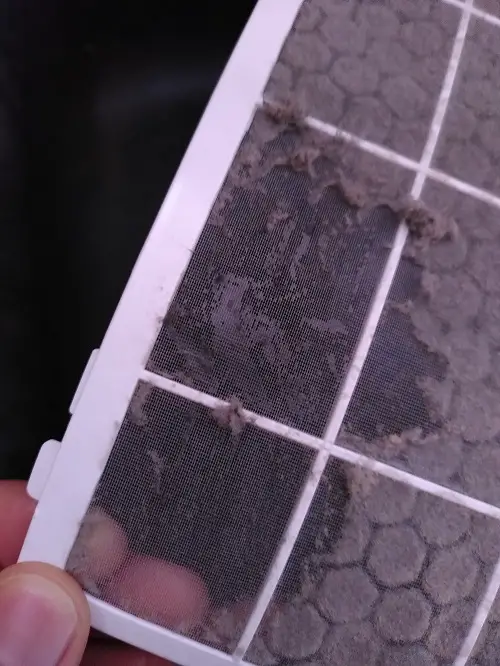
Conclusion
Air purifiers do a lot to improve our health and well-being. They clean the air of many harmful substances that we often cannot see or smell. These pollutants can cause short-term health effects but can also damage our health in the long term.
However, air purifiers are not the only option for cleaner indoor air. healthy habits such as ventilating more often and cleaning the carpet regularly can also contribute to more healful air.
Additionally, air purifiers do require a large upfront investment even though their running costs are fairly low. On top of that, there are a few disadvantages that should be considered including noise and needing to close all windows for optimal performance.
In the end, an air purifier is definitely worth purchasing to improve your air and health.

